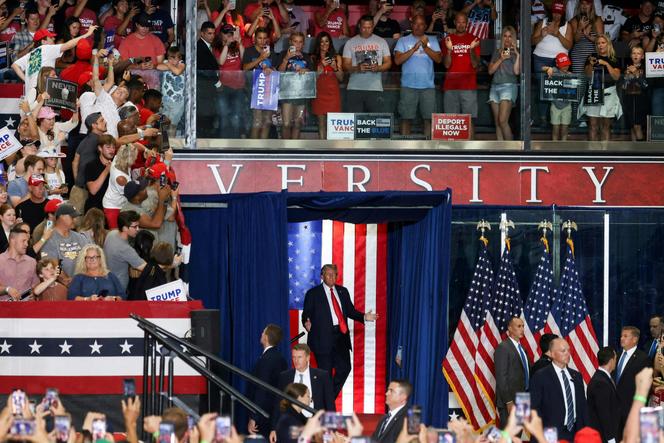


Donald Trump would undoubtedly have a good chance of returning to the White House if the presidential election were held in the next few days. But the sense of inevitability that filled the Republican National Convention in Milwaukee, Wisconsin, when it ended on July 18, just a few days after an assassination attempt on the former businessman, did not survive the electric shock caused by Joe Biden's July 21 decision to abandon his bid for a second term in favor of his vice president, Kamala Harris.
Polling aggregators have revealed that voting intentions at the national level between the two candidates have narrowed. The gap between the Republican and the Democrat is back within the margin of error, following the widening caused by Biden's calamitous performance in the first presidential debate on June 27. This fiasco had reignited questions about his physical ability to lead a contested presidential campaign.
This Democratic catch-up, which is also beginning to manifest itself in each of the key states where the election will be played out, reflects supporters' enthusiasm for their new leader, also evidenced by a torrent of campaign donations – over $200 million (€185 million) in less than 10 days.
The figure of Harris, the daughter of an Indian mother and a Jamaican father, could also help to curb the decline in African American men's support for the Democratic Party that has been observed in recent years.
Those around Trump are doing their best to put the effects of the July 21 upset in perspective, but it has nonetheless dislodged Trump from a comfortable position, since the campaign narrative had been focusing almost exclusively on the current president's weaknesses and age. The 78-year-old Republican now faces a 59-year-old female candidate.
One Republican pollster, Tony Fabrizio, circulated a memo on July 23 predicting a "honeymoon" for the Democrat. "Before long, Harris's 'honeymoon' will end and voters will refocus on her role as Biden's partner and co-pilot," he wrote. "As importantly, voters will learn about Harris' dangerously liberal record," her role in "creating historic inflation," the country's "flood of illegal immigrants at [the] southern border" and "migrant crime that is threatening (...) families and communities."
This memo foreshadowed the lines of attack in a Republican negative ad campaign worth $12 million (€11 million) that began on Tuesday, July 30. The ads target the most hotly contested states Biden won in 2020: Arizona, Georgia, Nevada, Michigan, Pennsylvania and Wisconsin. Minnesota and Virginia, where the Republican Party had recently shown ambitions, are not included.
You have 65.08% of this article left to read. The rest is for subscribers only.
